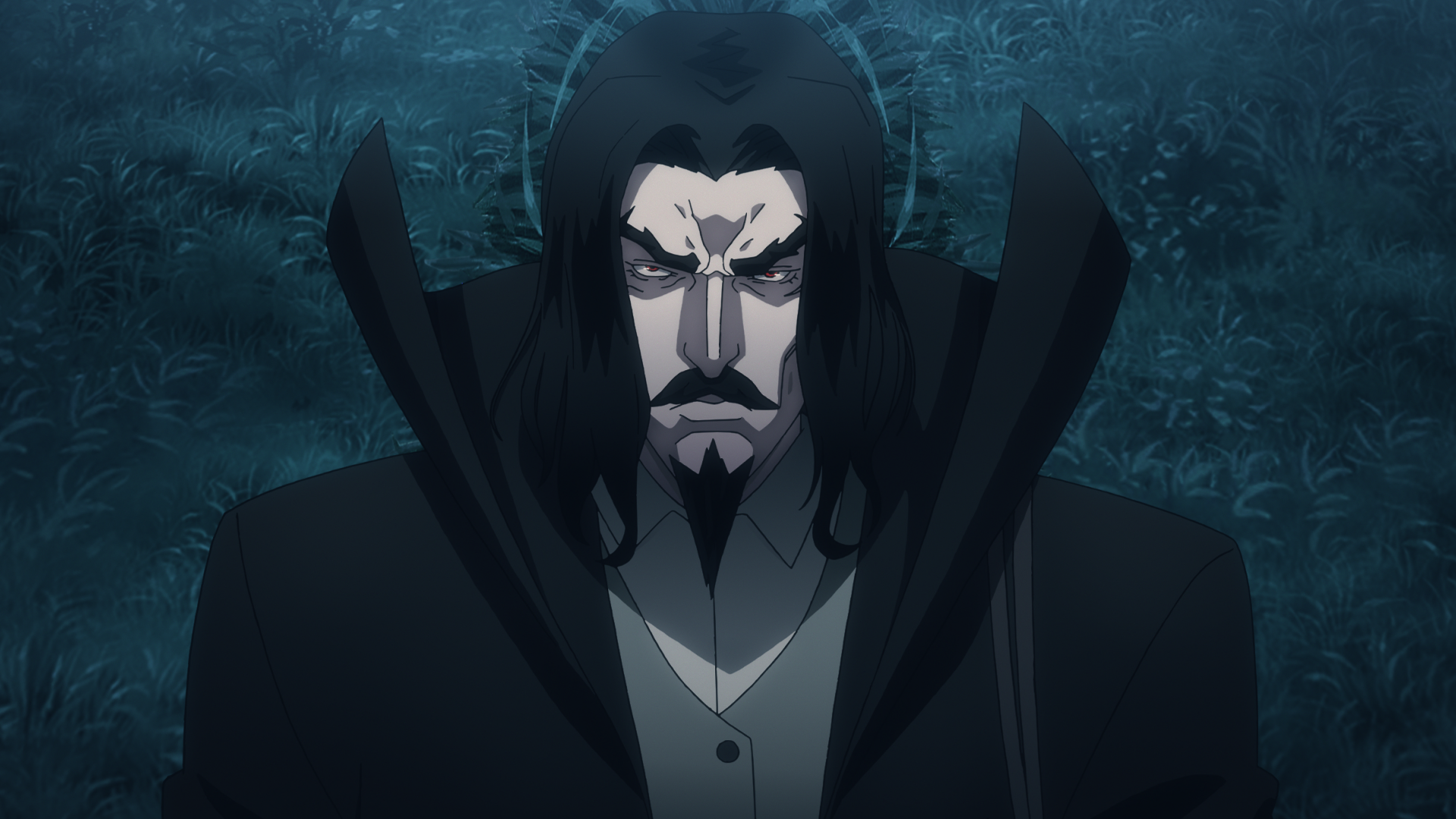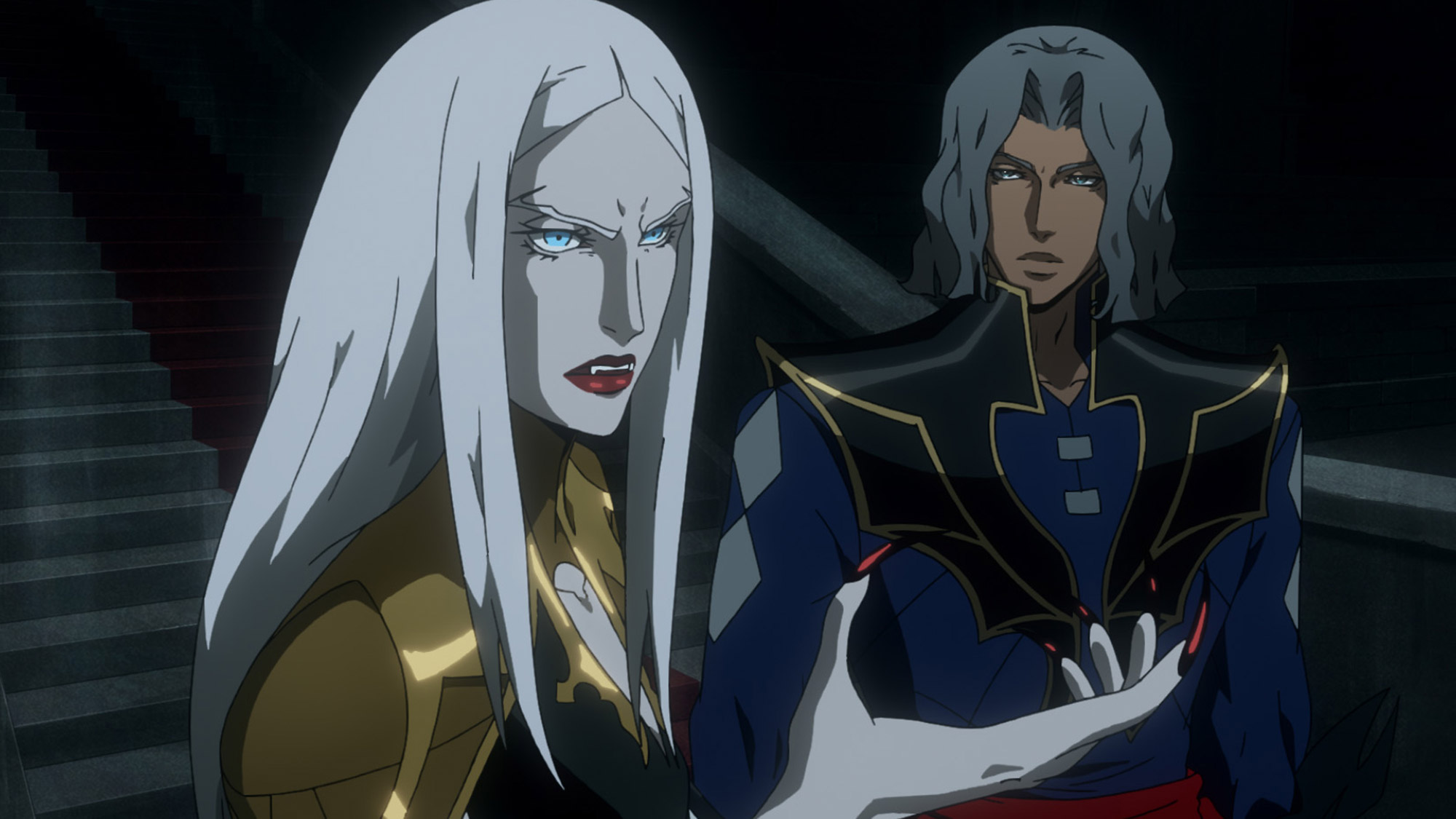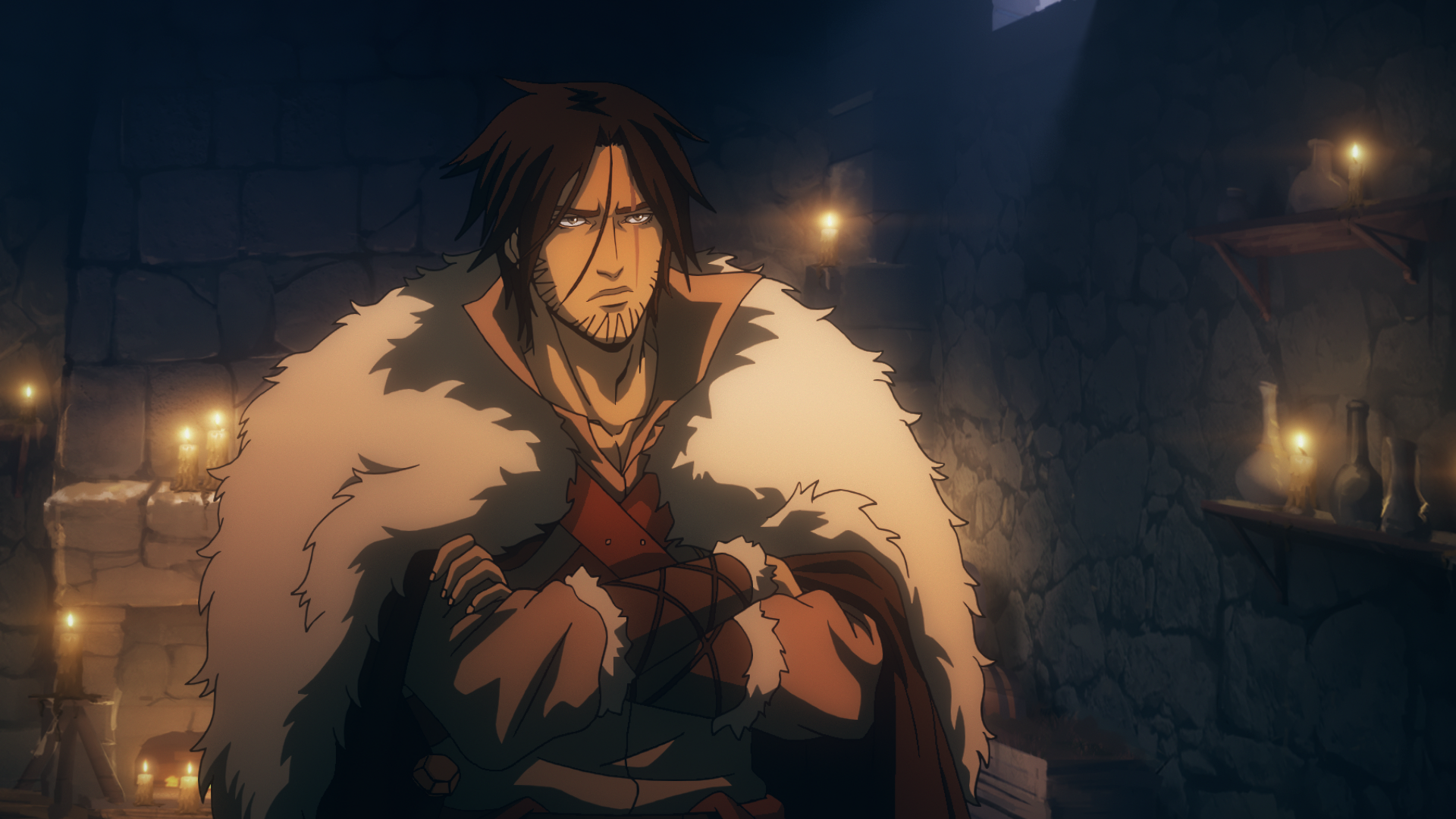Castlevania on Netflix is the only good video game adaptation — here's why
Castlevania Season 3 on Netflix is here, and it still works

Castlevania on Netflix is really good. The first season was promising, the second season was satisfying and the third season seems at least as worthwhile, so far. (I know some people can binge a whole series in an evening; I am not one of those people.) With a stellar cast, gorgeous animation and a sharp script, it's not entirely surprising that Castelvania is great; what's more surprising is that no other video game adaptation seems to get it right.
As a lifelong gamer, I've always had at least a passing interest in video game movies and TV. I know Mortal Kombat is fine, the Resident Evil series is not without its charms, and I personally kinda dug Prince of Persia.
- The Last of Us series on HBO: Cast and crew, release date and more
- Best Netflix series in March 2020
But there's no denying that that "campy fun" seems to be the best any of these films can achieve. As TV shows go, Earthworm Jim is an underrated classic, but I can't think of anything else that rises above "relatively watchable." (With all due respect to the late, great Lou Albano, The Super Mario Bros. Super Show was not actually that good.)
But Castlevania doesn't just work — it works incredibly well. And after puzzling over the show for three seasons, I think I've figured out why. It's not just because the games are good; it's not just because the cast is talented; and it's not just because the material seems ready-made for a mainstream adaptation. If those aspects helped, then Assassin's Creed, Ratchet & Clank and Tomb Raider would have been terrific films.
Instead, it's because Castlevania does what other adaptations seem too timid to do: It expands the game world. Castlevania has relatively sparse source material, narratively speaking. But rather than trying to portray that material exactly as it happened in the games, it asks, "What if this story were structured like a season of TV?" It fits the material to the format, rather than the other way around. Castlevania never tries to look, feel or act like a video game, and it's not afraid to totally change the rules whenever doing so would make for a better show.

Castlevania inspirations
This is going to be a tough pill for Castlevania fans to swallow, but I have to say it: The stories in the games are not actually that good. I'm sorry. I'm a huge fan of the series, and it brings me no joy to say that. But in the older games, the story boiled down to, "Dracula has returned; defeat him." In the newer games, the story boiled down to, "Dracula has returned, and co-opted at least one of your friends; defeat them."
But even if the individual stories are pretty basic, they add up to something bigger than the sum of their parts. Taken as a whole, the Castlevania story is, if not fascinating, then at least epic in scope. It's the thousand-year story of a family that's both cursed and empowered to hunt an evil that can never be killed. It's about their allies, who don't have to fight evil, but can't sit idly by, either. From Leon Belmont, who returns from the Crusades only to see his best friend tainted by vampirism, to Alucard, who turns against his own demonic father to protect two humans, to Soma Cruz, who must choose between his dark lineage and his desire to do good, Castlevania is downright poetic at times.
Get instant access to breaking news, the hottest reviews, great deals and helpful tips.
In a nutshell, that's why Castlevania works: because it takes what's actually interesting from the games and eschews or streamlines the rest. Aside from the gameplay, which you can't replicate in a TV show, the characters, monsters, and themes from the games are what have kept fans hooked on Castlevania for more than 30 years.

How things could have gone wrong
If you don't think that essentially rewriting the story from scratch was the best thing that Castlevania on Netflix could have done, consider the following. Castlevania is based on two games: Castlevania III: Dracula's Curse on the NES, and Castlevania: Curse of Darkness on the PS2. Edited for brevity, here is the story of the two games:
In Dracula's Curse, the year is 1476. Dracula summons an army of demons to swarm the European countryside. The Catholic Church summons Trevor Belmont, a vampire hunter with a magical whip, to deal with the problem. Along the way, Trevor recruits a sorceress named Sypha Belnades, a pirate named Grant and Dracula's son, Alucard, to help him take down the demon lord. They defeat Dracula, and… that's pretty much it. Since this was an NES game, at least half of this story unfolds in the instruction manual.
Curse of Darkness picks up a few years later and stars Hector: a Devil Forgemaster who used to serve Dracula, but betrayed the vampire lord. Hector's old companion, Isaac, doesn't take kindly to that, and draws the defector into a chase across Transylvania. Along the way, Hector encounters a traveler named Zead, who both help him along the way. But Zead turns out to be Dracula's servant, Death, and manipulates both Hector and Zead into reviving Dracula. After a brief battle, Hector defeats Dracula, who lies dormant for another hundred years or so.
To be fair, neither plot is terrible. But both of them are the kind of plots that only ever work in video games. As was common for NES action games, Dracula's Curse is about one level above an excuse plot; it was just there to facilitate the gameplay. Curse of Darkness, on the other hand, had the benefit of cutscenes, voice acting and a lengthy playtime. But it's also full of needless convolutions, oddly translated humor, in-jokes to other Castlevania games and at least one "camp gay" character (Isaac) whose adaptation was, wisely, much more subdued and nuanced.
Now imagine, for a moment, if Castlevania on Netflix had adapted these games as faithfully as possible. Trevor's adventure would have taken one, perhaps two, episodes, and had approximately five lines of dialogue. It would have been a trippy, colorful adventure of impossible geometries and short, meaningless combats. It might have been an interesting visual experiment, but I don't think it would have really resonated with anyone. Hector's season would have been more comprehensible, but it also would have been full of incoherent tangents and digressions, substituting length for depth.

Why Castlevania works
But that's not what Castlevania turned out to be, thankfully. In Warren Ellis's interpretation, Trevor Belmont is a wisecracking warrior who grows into his role as a protector. Sypha is both wise and playful, and wants to get out and learn about the wide world. Hector's warm heart and gentleness make it crystal clear that he picked the wrong side. Carmilla isn't just a level boss; she's the leader of her very own coven, and it's never quite clear whether she's Dracula's servant, or whether Dracula is just one more pawn in her plans. The narrative introduces all the characters deliberately within five episodes, rather than haphazardly over the course of two games and 16 years.
And yet, the whole package is distinctively Castlevania. It has the characters, the weapons, the monsters and the setting down pat. It's a perfect example of respecting the source material without being married to it.
In any case, the best way to see why Castlevania works is simply to watch it for yourself. It's an action-packed, pulpy horror romp with a lot of delightfully dumb comedy along the way. And you can now watch all three seasons on Netflix. At half-an-hour per episode, it's an easy commitment — unless you decide to binge the whole thing in one go.

Marshall Honorof was a senior editor for Tom's Guide, overseeing the site's coverage of gaming hardware and software. He comes from a science writing background, having studied paleomammalogy, biological anthropology, and the history of science and technology. After hours, you can find him practicing taekwondo or doing deep dives on classic sci-fi.
 Club Benefits
Club Benefits





